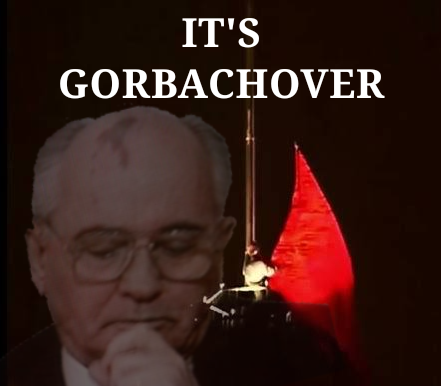I genuinely thought it was going to end with something silly like a "your mom" joke
This reads so much like a Mussolini quote that I am stunned it's actually real (at least as real as any e-quote is).
Capitalism on the one hand, communism on the other... man, I just support a Third Position!
hmm, I imagine the then 2 prevalent systems of neoliberal capitalism and soviet-style "communism" to be a pretty terrible combination actually. Although I believe I get what he was trying to say about individual rights within an economy of the commons(or at least thats how I interpret it).
I can't follow, would you elaborate? Sounds like an interesting debate :)
Sorry about the drama between our instances rn. I won't be able to see any responses to this comment, but I figured I would write it anyway.
The definition of capitalism is that owners control the means of production. In principle, this is the only individual right socialism curtails. There are no business owners or landlords under socialism. Homes are owned by their occupants, and businesses are run democratically by their workers with input from the community.
In practice, socialist states implement authoritarian measures to avoid being destroyed by capitalists. It's a matter of life and death, not preference. Salvador Allende won a democratic election and tried to serve in an open, rules-based, democratic way: the US couped him and installed a fascist dictator named Augusto Pinochet who threw socialists out of helicopters and tortured them to death in stadiums. There's a kind of brutal natural selection here, where only the authoritarian socialist states survive.
Parenti called it "siege socialism." No one wants authoritarianism, but it's either that or leap into the maw of capitalism. And, unfortunately, while some of the stories in western media are overstated or fabricated, socialist states do make mistakes and do some ugly things under these conditions. The "tankie" position is just to recognize that socialist states are essentially at war for their own survival, and focus our energy on condemning capitalist aggression rather than tear down the efforts of socialists who face that aggression.
Sorry again about the drama. I hope this comment is not taken in an aggressive or argumentative way.
I'll end with a quote from The Jakarta Method, which details the US-backed mass killing of over a million communists in Indonesia:
the quote:
This was another very difficult question I had to ask my interview subjects, especially the leftists from Southeast Asia and Latin America. When we would get to discussing the old debates between peaceful and armed revolution; between hardline Marxism and democratic socialism, I would ask: “Who was right?”
In Guatemala, was it Árbenz or Che who had the right approach? Or in Indonesia, when Mao warned Aidit that the PKI should arm themselves, and they did not? In Chile, was it the young revolutionaries in the MIR who were right in those college debates, or the more disciplined, moderate Chilean Communist Party?
Most of the people I spoke with who were politically involved back then believed fervently in a nonviolent approach, in gradual, peaceful, democratic change. They often had no love for the systems set up by people like Mao. But they knew that their side had lost the debate, because so many of their friends were dead. They often admitted, without hesitation or pleasure, that the hardliners had been right. Aidit’s unarmed party didn’t survive. Allende’s democratic socialism was not allowed, regardless of the détente between the Soviets and Washington.
Looking at it this way, the major losers of the twentieth century were those who believed too sincerely in the existence of a liberal international order, those who trusted too much in democracy, or too much in what the United States said it supported, rather than what it really supported -- what the rich countries said, rather than what they did.
That group was annihilated.
--Vincent Bevins, The Jakarta Method




